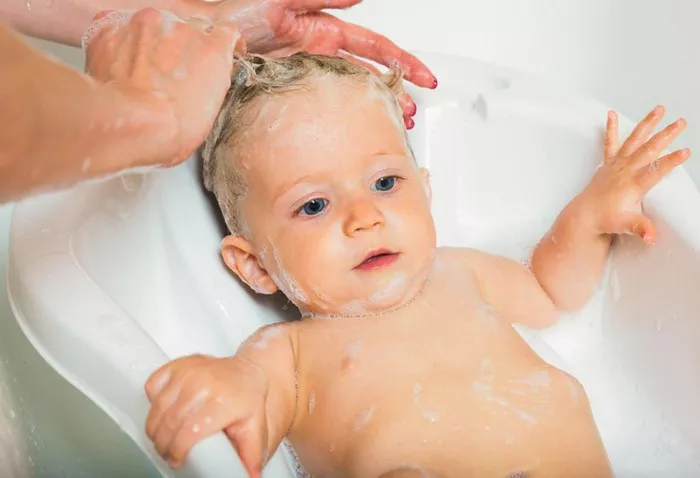As a new parent, there are countless decisions to make regarding the care of your newborn, and one of them is when to start washing their delicate hair. While it may seem like a simple task, there are important factors to consider to ensure that you are caring for your baby’s scalp properly. In this comprehensive guide, we will explore the best practices for washing a newborn’s hair, including when to start, how often to wash, and tips for maintaining a healthy scalp.
Understanding Newborn Hair
Before diving into the specifics of when to wash a newborn’s hair, it’s important to understand the characteristics of their hair. Unlike adults, newborns have very fine and delicate hair that requires gentle care. Additionally, their scalp is sensitive and prone to dryness, so it’s essential to use mild products that won’t irritate their skin.
Newborns are also born with a natural coating called vernix, which protects their skin and hair in the womb. This coating gradually wears off in the days following birth, but remnants may remain in their hair. Some healthcare providers recommend waiting until the vernix has completely disappeared before washing a newborn’s hair to avoid stripping away these natural oils.
When to Start Washing
The question of when to start washing a newborn’s hair often depends on individual preferences and cultural practices. Some parents may choose to wait until the umbilical cord stump falls off, while others may start bathing their baby shortly after birth. Ultimately, there is no strict rule, but there are some general guidelines to consider.
Many healthcare providers suggest waiting at least a few days to a week before washing a newborn’s hair, allowing their skin to adjust to life outside the womb. During this time, you can gently wipe their scalp with a damp cloth or cotton ball to remove any excess oil or debris.
Once you feel comfortable giving your baby a bath, you can incorporate washing their hair into the routine. However, it’s important to be mindful of their comfort and avoid excessive handling of their delicate scalp.
How Often to Wash
Newborns do not typically get very dirty, so there is no need to wash their hair daily. In fact, washing their hair too frequently can strip away natural oils and lead to dryness or irritation. Instead, aim to wash your baby’s hair 2-3 times per week or as needed.
If your baby has cradle cap, a common condition characterized by flaky or crusty patches on the scalp, you may need to wash their hair more frequently to help remove the buildup. In this case, using a gentle baby shampoo specifically formulated for cradle cap can help loosen the scales and alleviate symptoms.
Tips for Washing Newborn Hair
When washing your newborn’s hair, it’s important to use gentle and safe techniques to avoid causing discomfort or irritation. Here are some tips to keep in mind:
1. Use lukewarm water: Make sure the water temperature is comfortable for your baby, neither too hot nor too cold. Test the water with your wrist or elbow before placing your baby in the bath.
2. Support their head: Always support your baby’s head and neck when washing their hair to prevent them from slipping under the water. You can use one hand to cradle their head while washing with the other hand.
3. Use a mild baby shampoo: Choose a gentle baby shampoo that is free of harsh chemicals and fragrances. Avoid getting shampoo in your baby’s eyes, as it can cause irritation.
4. Rinse thoroughly: Be sure to rinse your baby’s hair thoroughly to remove all traces of shampoo. Leftover residue can irritate their scalp and cause discomfort.
5. Pat dry: After washing, gently pat your baby’s hair dry with a soft towel. Avoid rubbing their scalp, as this can cause friction and lead to irritation.
6. Comb gently: If your baby has longer hair, you can use a soft baby brush or comb to gently detangle their hair after washing. Start at the roots and work your way down to the ends, being careful not to pull or tug on their hair.
Conclusion
Knowing when to wash a newborn’s hair and how to do it properly is an important aspect of infant care. By following these guidelines and using gentle techniques, you can help keep your baby’s scalp clean and healthy without causing discomfort or irritation. Remember to be patient and take cues from your baby’s reactions, as every child is unique and may have different preferences when it comes to bathing and grooming. With a little practice and lots of love, you’ll soon become an expert at caring for your newborn’s delicate hair.


